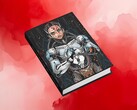Palworld’s studio, Pocketpair, has recently made waves in the publishing world with its firm stance against the use of generative AI, announcing that its publishing division will not back any titles relying on the technology.
In an interview with Game Developer at Gamescom Asia, communications director and publishing manager John “Bucky” Buckley stated, “People are going to say I’m lying, but these are just the hard facts. We don’t believe in it. We’re very upfront about it.”
Pocketpair’s policy extends to Web3 projects and NFT games as well, with Buckley further stating, “If you’re big on AI stuff or your game is Web3 or uses NFTs, there are lots of publishers out there who’ll talk to you, but we’re not the right partner for that.”
Pocketpair’s publishing division, which launched in mid-January 2025, was quickly inundated with interest, receiving over 400 emails, 150 pitches, and more than 2,000 LinkedIn requests in the first week alone, according to an official update on X.
The division’s debut project is an untitled horror game from Surgent Studios, known for Tales of Kenzara: ZAU, featuring voice talents like Baldur’s Gate 3’s Neil Newbon and Final Fantasy 16’s Ben Starr.
Buckley’s reservations about generative AI stem partly from the industry’s growing flood of low-effort content, which he predicts will dominate storefronts like Steam in the coming years. He said, “It’s something that has plagued other stores, but Steam had been good at keeping them out. But it’s happening.”
He warns that this change in the industry could breed paranoia, leading to false accusations that unfairly target legitimate creators, a challenge that Pocketpair ironically knows all too well.
In early 2024, shortly after Palworld’s explosive Early Access launch, which saw the title sell 5 million copies in three days and attract more than two million concurrent players on Steam, the game faced a barrage of claims that it was “AI slop.”
Many critics pointed out the creature designs as suspiciously Pokémon-like, with people online dissecting models for alleged asset theft from Pokémon: Scarlet and Violet, while others dredged up CEO Takuro Mizobe’s 2021 tweets experimenting with AI-generated “fakemon” to evade copyright.
Pocketpair vehemently denied the allegations, crediting a single artist rejected by 100 companies, who now handles most of the character designs, and even released the party game AI: Art Imposter, a social deduction game about spotting AI fakes to poke fun at the trend.
The irony of such scrutiny isn’t lost on Buckley, who recounted how responding to detractors often backfires, “You know, I can’t just come out and start fighting with these people who make the AI accusations, because that just fuels what’s going on.”
Pocketpair continues to provide regular updates to Palworld in the meantime even as it continues to fight mounting legal challenges from Nintendo over perceived copyright violations the former has engaged in when it comes to its highly lucrative Pokémon franchise.






























